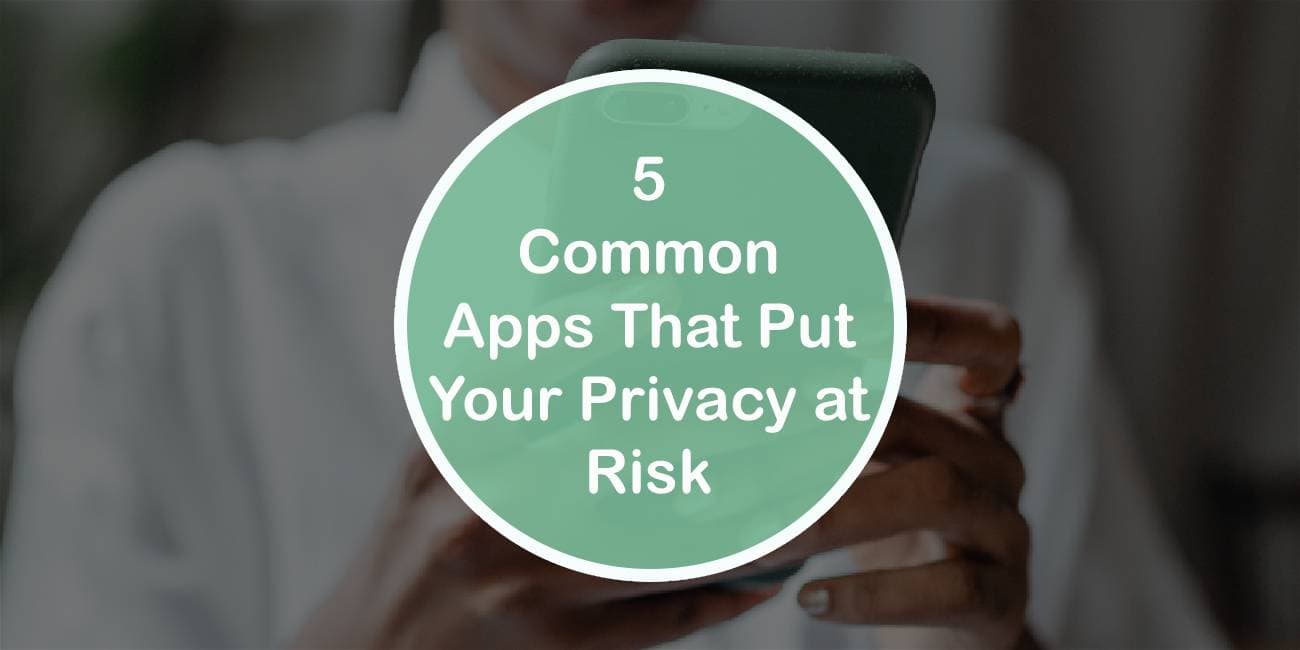In our world of digital connectivity, we are constantly making ourselves vulnerable to potential privacy threats. We use a variety of apps on our phones and computers to access information, communicate with others, and even manage our financials. However, many of the most commonly used apps have significant flaws in their security protocols that put your personal information at risk. In this article, I will discuss 5 popular applications that can compromise your privacy if you’re not careful.

1. Dating Apps
Using dating apps can be a fun and exciting way to meet new people, but they also carry risks that could put your privacy in danger. When using one of these apps, it is important to understand how the technology works and how it collects your data. Dating apps collect a large amount of user information such as age, gender, location, interests, and personal preferences. This data can be used by marketers to target ads or shared with other companies without the user’s knowledge. Additionally, many dating apps have been found to share sensitive information such as sexual orientation or even HIV status with third-party companies. This type of data can easily fall into the wrong hands and lead to identity theft or other malicious attacks on users’ privacy.
2. Fitness Trackers
In the digital age, fitness trackers have become a popular tool for tracking physical activity and health metrics. However, in exchange for convenience and insight into one’s health, many are unaware of the risks that come with using these devices. Recent studies suggest that fitness trackers can put one’s privacy at risk. Data collected from fitness trackers are typically stored on the device itself or uploaded to mobile apps or cloud services, making it vulnerable to cybercriminals and other malicious actors. In addition to data breaches, personal information can be used by companies to target users with ads or even stolen entirely without the user’s knowledge.
3. Contact Tracing Apps
In the wake of the COVID-19 pandemic, contact tracing apps have become increasingly popular. These apps are designed to track a person’s location and alert them when they have been near someone who has tested positive for the virus. However, there is growing concern that these apps could potentially put users’ privacy at risk. Contact tracing apps use a variety of methods to collect data, such as Bluetooth signals and GPS location tracking. This type of data collection can be used to pinpoint an individual’s exact whereabouts at any given moment and this raises concerns about the potential misuse of this data by governments or other organizations. There is also no guarantee that contact tracing app providers will keep user information secure from hackers or other malicious actors who could gain access to sensitive personal information.
![]()
4. Period Trackers
The wave of period-tracking apps has been rising over the past few years, as more and more women turn to their phones to keep track of monthly cycles. But with this convenience comes a worrying cost: many apps are putting users’ privacy at risk. Period tracking apps not only request access to users’ data, such as location and contact information, but they also store this data in databases that can be hacked into. This means that anyone who has access to those databases could potentially get their hands on sensitive user information, including age and health history. Furthermore, some app developers are selling or sharing this data with third parties without clearly informing users about it in the app’s Terms & Conditions.
5. Coffee Shop Loyalty Programs
Coffee shop loyalty programs have become increasingly popular in recent years as a way for businesses to reward customers for their patronage. However, there are some potential risks associated with these programs that could put your privacy at risk. Data collected from loyalty programs can be used to gather information about customers and their habits. This data can then be shared with third parties or used to target users with ads based on their tastes and preferences. This means that customers may not know how their personal information is being used or who has access to it. Additionally, if the coffee shop experiences a security breach, customer data may not be adequately protected and could potentially fall into the wrong hands.
Apps have become an essential part of our daily lives and it’s important to be aware of the risks that come with using them. There are a variety of apps that can put your privacy at risk, but these five apps common are some of the most concerning. By taking the steps outlined in this article, you can make sure that your data remains safe and secure.

